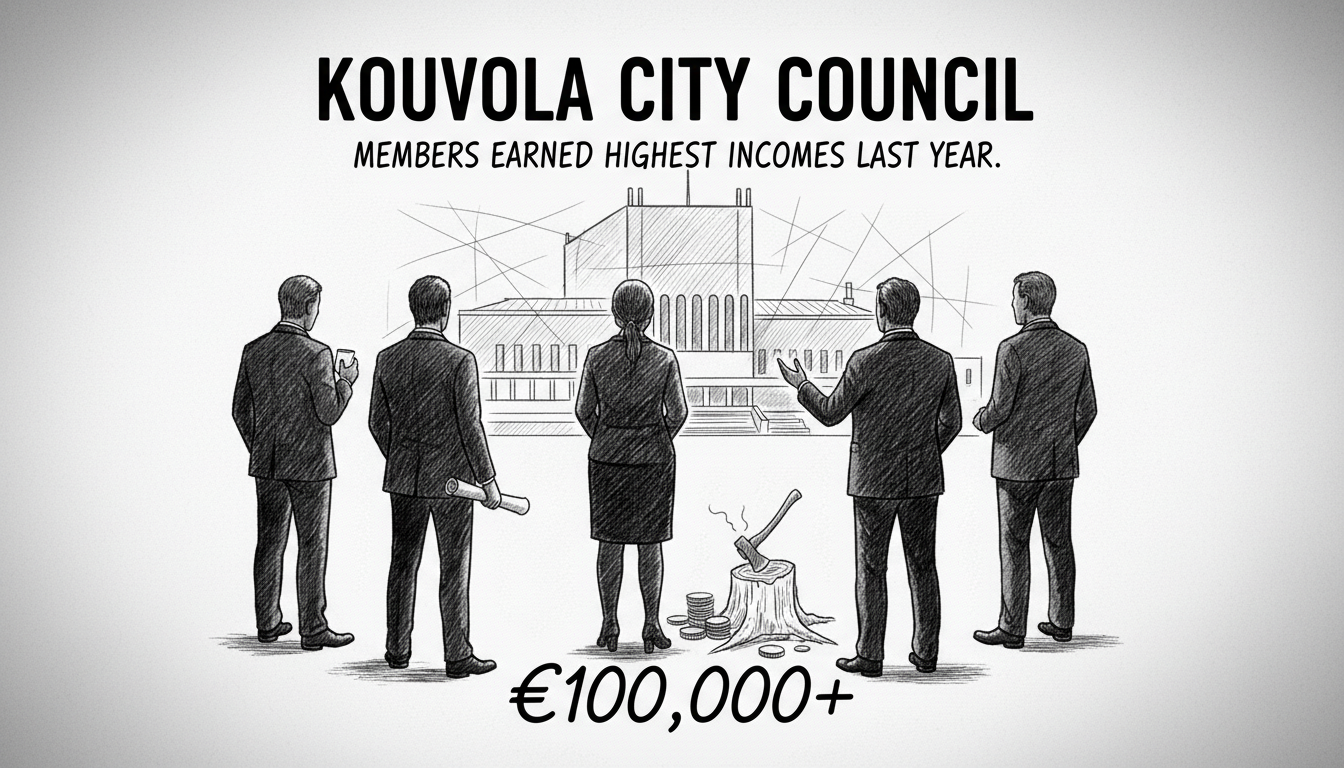Five city council members in Kouvola earned over €100,000 last year, with the top earners coming from both the National Coalition Party and Social Democratic Party. The income data reveals significant earnings disparities among local politicians in the southeastern Finnish city.
Physician Jouko Leppänen emerged as the highest earner with taxable income of €190,392, nearly entirely from employment income. City Council Chair and Member of Parliament Ville Kaunisto followed with €122,099, combining €100,598 in employment income and €21,501 in capital income from his known real estate investments.
Retired principal and city board member Tapio Karvonen ranked third with €113,207 total income. His earnings increased by approximately €20,000 from the previous year, reflecting growing income among some council members.
Among the 59-member city council, Social Democratic representatives Jukka Nyberg and Päivi Sippula also surpassed the €100,000 threshold. Nyberg, though retired, earned €108,425 entirely from employment income through his role as chairman of a senior care association. Sippula, a healthcare services unit manager, reported €101,364 with substantial capital income from forest thinning operations.
City Board member Petri Liljander led in capital income with €59,018 from his role as chairman and co-founder of forestry company Koumet Oy. His case highlights how business ownership contributes to political representatives' income profiles.
The income distribution raises questions about economic diversity in local governance. While some council members rely primarily on employment income, others benefit significantly from business activities and investments. This pattern reflects broader trends in Finnish politics where elected officials often maintain diverse income sources.
Finnish municipal politicians receive meeting fees and compensation for their public duties, but these figures represent their total taxable income from all sources. The transparency of income data allows voters to assess potential conflicts of interest and economic backgrounds of their representatives.
The substantial earnings of some council members contrast with average incomes in the Kouvola region, where median incomes typically fall below these figures. This economic gap between representatives and constituents may influence political priorities and policy focus areas.
Local government transparency requirements in Finland mandate public disclosure of elected officials' income data. This system enables voters to make informed decisions about potential conflicts of interest and the economic perspectives their representatives bring to policymaking.
As municipal elections approach, income transparency remains crucial for voter awareness. The data provides insights into the professional backgrounds and economic interests that may shape local decision-making in Kouvola and similar Finnish municipalities.

